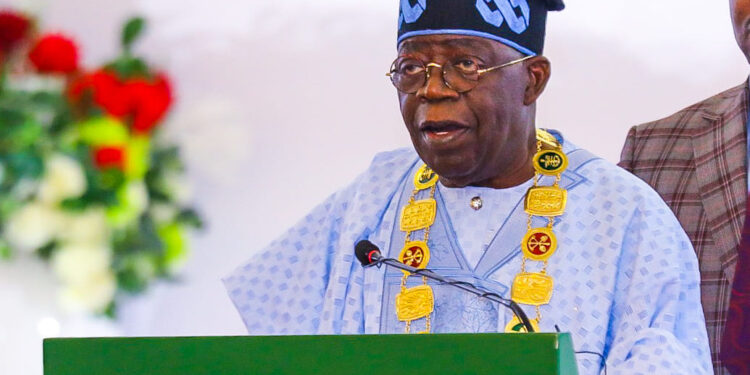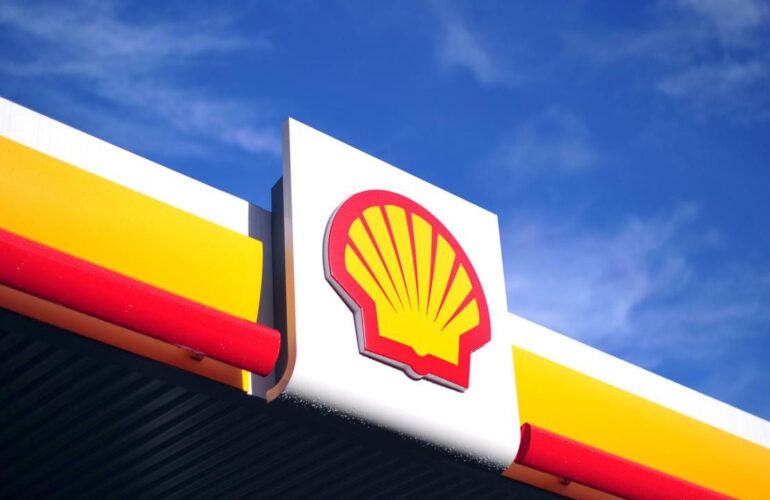President Bola Tinubu is set to inaugurate three vital gas infrastructure projects carried out by the Nigerian National Petroleum Company Limited (NNPCL) and its partners.
This is contained in a statement by the President’s spokesperson, Ajuri Ngelale, on Friday in Abuja.
According to the statement, the projects will enhance the federal government’s initiative to increase the value derived from the nation’s gas assets and eliminate gas flaring.
RelatedStories
crude oil production
NNPCL, NOSL commence oil production at OML 13, target 40,000bpd
MAY 13, 2024
Kashim Shettima
VP Shettima says tax reforms designed to benefit all Nigerians
MAY 12, 2024
Ngelale pointed out that the delivery of the projects was expedited from the start of the administration, aligning with the overarching goal of enhancing domestic gas supply as a vital catalyst for economic prosperity.
“In line with his commitment to significantly leverage gas to grow the economy, President Bola Tinubu will commission three critical gas infrastructure projects being undertaken by the Nigerian National Petroleum Company Limited (NNPCL) and partners.
“The projects support the federal government’s effort to grow value from the nation’s gas assets while eliminating gas flaring.
“The delivery of the projects was accelerated from the inception of the administration in keeping with the overall objective of deepening domestic gas supply as a critical enabler for economic prosperity,” Ngelale noted.
The Projects to be Commissioned by the President
The projects lined up for commissioning include:
1. AHL Gas Processing Plant 2 (GPP – 2) – 200mmscf/dd:
This project is an expansion to the Kwale Gas Processing Plant (GPP – 1), which currently supplies about 130MMscf/d of gas to the domestic market. The processing plant is designed to process 200MMscf/d of rich gas and deliver lean gas through the OB3 Gas Pipeline.
This additional gas supply will support further rapid industrialization of Nigeria. The plant will also produce about 160,000 MTPA of Propane and 100,000 MTPA of Butane, which will reduce the dependency on LPG Imports.
The AHL Gas Plant is being developed by AHL Limited, an incorporated Joint Venture owned by NNPC Limited and SEEPCO.
2. ANOH Gas Processing Plant (AGPC) – 300MMscf/d:
The ANOH gas plant is an integrated 300MMscf/d capacity gas processing plant designed to process non-associated gas from the Assa North-Ohaji South field in Imo State.
The plant will produce dry gas, condensate, and LPG. The gas from ANOH gas plant will significantly increase the domestic gas supply, leading to increased power generation and accelerated industrialization.
The ANOH Gas Plant is being developed by ANOH Gas Processing Company, an incorporated Joint Venture owned by NNPC Limited and Seplat Energy Plc on a 50-50 basis.
3. ANOH-OB3 CTMS Gas Pipeline Project:
The project involves the engineering, procurement, and construction of 36”x23.3km ANOH-OB3 Project.
The Transmission Gas Pipeline will evacuate dry gas from the Assa North-Ohaji South (ANOH) primary treatment facility (PTF) to OB3 Custody Transfer Metering Station (CTMS) for delivery into the OB3 pipeline system.
About 600MMscf/d is estimated to be available from two separate 2 x 300MMscf/d capacity gas processing production trains from AGPC & SPDC JV.
Furthermore, Ngelale further stated that the projects will boost gas supply to the domestic market by about 500 million standard cubic feet per day, fostering a more favorable investment environment and cumulatively promoting balanced economic growth following their commissioning.
What you should know
Earlier in February, President Bola Tinubu signed new executive orders aimed at enhancing the investment environment and establishing Nigeria as the top choice for investments in the oil and gas industry across Africa.
The president issued this policy directive in Abuja’s extensive engagements with major stakeholders in the sector.
The directives entail the provision of financial incentives for the development of non-associated gas, midstream operations, and deepwater projects.
In addition, the initiative focused on optimizing the contracting process to decrease the cycle time to six months.





